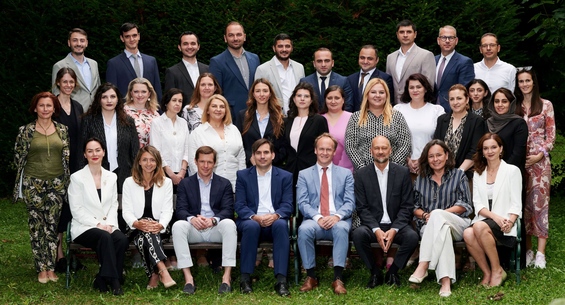- English | Русский


The JVI / ECB / World Bank FinSAC course on Non-Performing Loan Management and Resolution was delivered during July 1-5 in Vienna. The course was attended by 29 participants from 17 countries, almost all of them experienced bank supervisors with a geographical focus on the CESEE part of the JVI region.
The course provided a comprehensive and detailed overview of NPL management and resolution tools, incorporating CESEE country practices, ECB supervisory methodologies and lessons from NPL reduction in past crisis countries. The course also touched upon recent issues, such as the rise in commercial real estate related NPLs. As confirmed by the participant feedback, a key strength of the course was the involvement of experienced lecturers on NPL recognition, supervision, management and resolution, including from WB FinSAC and the ECB.
The course included several innovations compared to previous course deliveries: Laurent Millischer (JVI) gave a lecture on modeling expected credit losses for IFRS9-compatible provisioning, drawing from insights from a recent IMF Technical Assistance and related forthcoming IMF Working Paper he co-authored on the issue. This example illustrates the benefits of JVI Economist involvement in external activities, such as IMF Technical Assistance, to further enhance training delivery on current issues.
Jaime Ponce from the IMF’s Monetary and Capital Markets Department presented as a guest speaker the findings of a new IMF Technical Note on ‘The Case For (and Against) Asset Management Companies in Banking Crises’ in hybrid format. In addition, the course included for the first time a short hybrid presentation by a guest speaker from the NPL industry, Burkhard Heppe (NPL Markets Ltd.), who presented artificial intelligence and machine learning use cases to support NPL market transactions.
The course was very well received by participants, who viewed the skills and knowledge gained during the course as helpful for their job and professional development. Based on the feedback, participants particularly appreciated the country experiences included in the sessions, which provided insight in the applied policies by CESEE countries, for instance on collateral valuation or NPL write-off practices, as well as the workshop on corporate viability assessment and an extended group workshop in which participants developed holistic NPL resolution strategies for fictitious CESEE countries experiencing NPL increases.
Maximilian Fandl, Senior Economist, Joint Vienna Institute